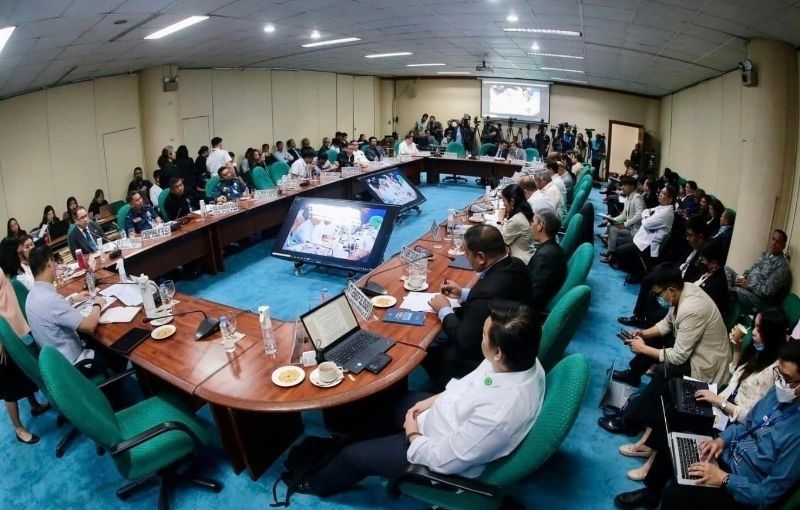Losses vs gains: What will happen to the economy if the government bans POGOs?

MANILA, Philippines (Updated 12:53 p.m.) — Lawmakers have long sought to ban Philippine offshore gaming operators (POGOs) from the country after they opened the door to a range of criminal activities—spanning from human trafficking and torture to possibly even killings.
Despite the illegal activities linked to POGOs, the Philippine Amusement and Gaming Corp. (PAGCOR) has argued that regulation, rather than an outright ban, would be more beneficial. Many others, however, believe that a ban is long overdue because of the unsavory image POGOs paint of the country.
But what would a total ban look like for our economy?
Potential losses
Employment and lost financial gain have often been the constant counterpoint when it came to banning POGOs. Michael Ricafort, chief economist of the Rizal Commercial Banking Corp., told Philstar.com that while a POGO ban would have adverse effects on the economy, there are more long-term benefits to be gained.
Ricafort said that potential losses from a POGO ban include:
- Reduced employment for Filipinos. However, according to data from the Department of Labor and Employment (DOLE), there was an average of 57,436 jobs generated from POGO industries from 2019 to 2023. The bulk of these jobs—an average of 37,269—went to foreigners, while only 20,167 went to Filipinos.
- Reduced demand for retailers, commercial establishments, and real estate rentals, both residential and office spaces. Real estate consultant David Leechiu, CEO of Leechiu Property Consultants, echoed the sentiment, saying a POGO ban could result in 1.05 million square meters of office space vacancy.
- Loss of up to P40 billion in gaming revenues, according to PAGCOR estimates.
Potential gains
No less than the Department of Finance (DOF), the government's fiscal policy authority, has called for a ban on POGOs.
At a Senate hearing, the DOF presented a cost-benefit analysis estimating that the country stands to lose P99.5 billion per year if the gaming hubs remain legal.
As it stands, the DOF said POGO operations have a total economic cost of P265.74 billion and economic benefits amounting to only P166.49 billion annually.
The DOF also stated that the country could recuperate potential economic losses through new investments.
Both Ricafort and the DOF agreed that while there would be capital losses if POGOs are banned, keeping them comes with costs beyond the monetary.

Ricafort said stronger institutions and governance standards are more beneficial in the long run.
The Philippine National Police (PNP) has vowed to support and enforce a POGO ban, urging even the Senate to pass the proposed Anti-Online Gambling Act.
Gradual phaseout vs immediate ban
While President Ferdinand Marcos Jr. has largely remained silent on whether there will be a POGO ban, the Presidential Anti-Organized Crime Commission (PAOCC) prefers a gradual phaseout.
PAOCC spokesperson Winston Casio said stripping away licenses from POGO hubs will not necessarily stop them, noting that the government had canceled 298 POGO licenses, but many still operate.
“A good number of those 298 are still operating. What does that mean? That even if you totally banned them, you don’t necessarily take them out of the picture,” Casio said.
However, Ricafort pointed out that prolonging the existence of POGOs could allow more time for criminal activities to happen.
"Gradual ban would prolong any uncertainties, especially potential violations of the law," the economist said.
Ricafort maintained that violations of the law are "intangible" and that taking a harder stance against POGOs is a sign of good governance that global investors are looking at.
“Good signaling din yung good governance since global investors patronize countries that comply with ESG (environmental, social, and governance) standards,” Ricafort said.
Waiting on Marcos' decision. Key leaders, particularly in the Senate, are still waiting for Marcos to ban POGOs.
Sen. Aquilino Pimentel III said he hopes Marcos would announce it at the third State of the Nation Address on Monday, July 22.
- Latest
- Trending

































